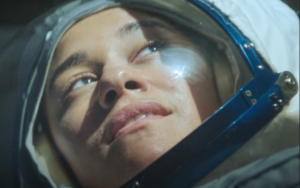CTV NEWSCHANNEL: MOVIE REVIEWS FOR SUNDAY JANUARY 20, 2024!
 I join CTV NewsChannel anchor Roger Peterson to have a look at the space thriller “I.S.S.,” the poignant “Memory” and the drama “Origin.”
I join CTV NewsChannel anchor Roger Peterson to have a look at the space thriller “I.S.S.,” the poignant “Memory” and the drama “Origin.”
Watch the whole thing HERE!
 I join CTV NewsChannel anchor Roger Peterson to have a look at the space thriller “I.S.S.,” the poignant “Memory” and the drama “Origin.”
I join CTV NewsChannel anchor Roger Peterson to have a look at the space thriller “I.S.S.,” the poignant “Memory” and the drama “Origin.”
Watch the whole thing HERE!
 I join “CTV News Toronto at Five” with host Natalie Johnson, to talk about the space thriller “I.S.S.,” the poignant “Memory” and the drama “Origin.”
I join “CTV News Toronto at Five” with host Natalie Johnson, to talk about the space thriller “I.S.S.,” the poignant “Memory” and the drama “Origin.”
Watch the whole thing HERE! (Starts at 13:06)
 I sit in with NewsTalk 1010 host Jim Richards on the coast-to-coast-to-coast late night “NewsTalk Tonight” to play the game “Did Richard Crouse Like This?” This week we talk about the space thriller “I.S.S.,” the poignant “Memory” and the drama “Origin.”
I sit in with NewsTalk 1010 host Jim Richards on the coast-to-coast-to-coast late night “NewsTalk Tonight” to play the game “Did Richard Crouse Like This?” This week we talk about the space thriller “I.S.S.,” the poignant “Memory” and the drama “Origin.”
Listen to the whole thing HERE!
 I join CP24 anchor Andrew Brennan to have a look at the space thriller “I.S.S.,” the poignant “Memory” and the drama “Origin.”
I join CP24 anchor Andrew Brennan to have a look at the space thriller “I.S.S.,” the poignant “Memory” and the drama “Origin.”
Watch the whole thing HERE!
 I joined CP24 Breakfast to have a look at new movies and television shows coming to theatres and streaming services. Today we talk about the space thriller “I.S.S.,” the poignant “Memory” and the Paramount+ series “The Woman in the Wall.”
I joined CP24 Breakfast to have a look at new movies and television shows coming to theatres and streaming services. Today we talk about the space thriller “I.S.S.,” the poignant “Memory” and the Paramount+ series “The Woman in the Wall.”
Watch the whole thing HERE!
 I sit in on the CFRA Ottawa morning show with host Bill Carroll to talk the new movies coming to theatres including the space thriller “I.S.S.,” the poignant “Memory” and the drama “Origin.”
I sit in on the CFRA Ottawa morning show with host Bill Carroll to talk the new movies coming to theatres including the space thriller “I.S.S.,” the poignant “Memory” and the drama “Origin.”
Listen to the whole thing HERE!
 Fast reviews for busy people! Watch as I review three movies in less time than it takes to pour a drink! Have a look as I race against the clock to tell you about the space thriller “I.S.S.,” the poignant “Memory” and the drama “Origin.”
Fast reviews for busy people! Watch as I review three movies in less time than it takes to pour a drink! Have a look as I race against the clock to tell you about the space thriller “I.S.S.,” the poignant “Memory” and the drama “Origin.”
Watch the whole thing HERE!
 In “I.S.S. (International Space Station),” a new sci fi/horror drama starring Oscar-winner Ariana DeBose and Chris Messina, and now playing in theatres, the conflict that drives the outer space story is very much earthbound.
In “I.S.S. (International Space Station),” a new sci fi/horror drama starring Oscar-winner Ariana DeBose and Chris Messina, and now playing in theatres, the conflict that drives the outer space story is very much earthbound.
In the spirit of international co-operation, astronauts and cosmonauts aboard the International Space Station hail from the United States and Russia. The Americans, team leader Gordon Barrett (Chris Messina), biologist Dr. Kira Foster (Ariana DeBose) and Christian Campbell (John Gallagher Jr.), work alongside Russians Alexey Pulov (Pilou Asbæk), Weronika Vetrov (Masha Mashkova), and Nicholai Pulov (Costa Ronin).
“We don’t talk politics. Here we are one.”
Despite having virtually no privacy in the cramped quarters, tensions are kept to a minimum, although Pulov ominously hints at the trouble to come when he notes that it won’t end well for the laboratory mice Foster brought on-board and keeps in a small paddock.
For now, however, all is well. They play chess, do sing-alongs and drink booze in zero gravity.
“You forget everything that happens down there,” Pulov says, “when you can see the beauty from up here.”
The peaceful ship’s tranquil atmosphere is shattered when a sudden burst of flame appears on Earth. Foster first thinks it is a natural phenomenon, like a volcanic eruption, but when a cluster of explosions occurs in rapid succession, it’s clear something devastating is happening below.
Stepping outside the ship to repair a broken antenna, Barrett witnesses a terrible sight. War has broken out between the U.S. and Russia, and the Earth is on fire.
NASA has instructed the Americans to “take the I.S.S. by any means necessary.” Trouble is, both countries see the I.S.S. as an asset, and both want control. “We have to assume the Russians have the same order,” says Campbell.
What began as an exercise in co-operation soon becomes a matter of survival as they lose communication with Earth, and must overcome their mistrust of one another to keep the I.S.S. from plummeting from the sky.
A study of human nature rather than a sci fi epic, “I.S.S.” is a fairly simple, yet effective, story of loyalty, sabotage and treachery. The I.S.S. setting is compelling, providing horror elements like claustrophobia and isolation, but this is essentially a locked room drama that is more about human nature than it is about zero gravity. The monsters here isn’t from outer space, it’s the mistrust and paranoia that forms in the face of adversity.
Set to an anxiety-inducing soundtrack by Anne Nikitin, the movie doesn’t rewrite the isolation horror playbook, but delivers tension with interesting characters and their ever-shifting, murky allegiances.
DeBose leads the small cast, acting as the story’s focus and moral core. All the other characters interact with her and it is, more often than not, up to her to guide the audience through the plot’s many machinations. She brings gravitas and likability to her first big screen dramatic role, after winning an Oscar for her work in the musical “West Side Story.”
The rest of the cast add capable support, particularly Asbaek, whose character is torn between duty and the humanity of the situation.
“I.S.S.” is a barebones effort with decent special effects and some good zero gravity visuals, but don’t expect the lavish treatment of a film like “Gravity.” Director Gabriela Cowperthwaite does a lot with a little, effects wise, but is more concerned with the life-and-death, us-vs-them conundrum at the story’s heart as paranoia and suspicion give way to sabotage and betrayal.
 Richard appears on “CTV News at 6” with anchor Andria Case to talk about the best movies and television to watch this weekend. This week he has a look at two movies starring guys named Chris, “Lightyear” with Chris Evans and “Spiderhead” with Chris Hewmsworth.
Richard appears on “CTV News at 6” with anchor Andria Case to talk about the best movies and television to watch this weekend. This week he has a look at two movies starring guys named Chris, “Lightyear” with Chris Evans and “Spiderhead” with Chris Hewmsworth.
Watch the whole thing HERE! (Starts at 37:46)